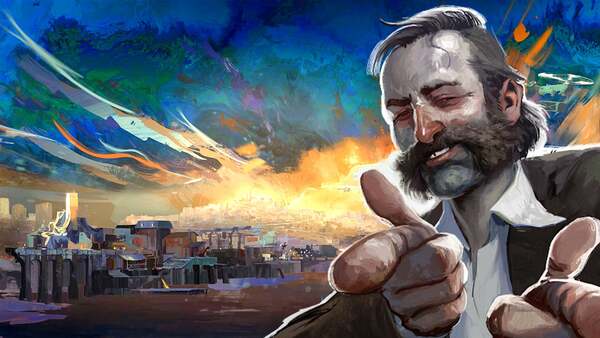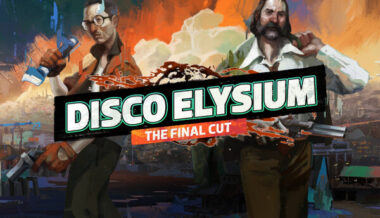Introduction
Disco Elysium is a role-playing video game that has captured the attention of gamers and critics alike with its intricate storytelling and philosophical depth. Developed by ZA/UM and released in 2019, it stands out not only for its rich narrative and unique art style but also for its exploration of themes such as identity, politics, and personal responsibility. Rather than relying on traditional combat mechanics, Disco Elysium emphasizes dialogue, decision-making, and character development. In this article, we will delve into the complexities of Disco Elysium, examining its narrative structure, gameplay mechanics, and the profound themes that resonate throughout the experience.

A Narrative-Driven Experience: The Importance of Storytelling
At the heart of Disco Elysium is its narrative, which is intricately woven and layered, offering players a rich tapestry of experiences and choices.
Character Development and Complexity
The game follows an unnamed detective suffering from amnesia as he attempts to solve a murder case in the city of Revachol. Players have the freedom to shape the detective’s personality through dialogue choices and skill points, allowing for a multitude of character builds. This development makes each playthrough unique, as the player can lean into different aspects of the character’s psyche—be it a more empathetic, intellectual, or aggressive approach.
Branching Dialogues and Consequences
The branching dialogue system allows for a plethora of choices that significantly affect the narrative and the relationships with other characters. Unlike many RPGs, where choices often lead to clear paths or outcomes, Disco Elysium embraces ambiguity. Players may find that their choices can lead to unexpected consequences, shaping not only the case’s resolution but also the protagonist’s understanding of himself and the world around him.
Exploring Themes of Identity and Memory
One of the most profound aspects of Disco Elysium is its exploration of identity and memory. The detective’s amnesia serves as a powerful narrative device, reflecting on the nature of self and the impact of experiences on identity.
Self-Discovery Through Choice
As players navigate the detective’s journey, they are invited to confront questions of identity: Who is the detective? What past experiences shape him? The game’s mechanics encourage self-exploration, prompting players to reflect on their own values and beliefs as they make choices for the character. This engagement fosters a deep emotional connection to the narrative, as players invest in the detective’s journey of self-discovery.
Memory and the Past
Memory plays a crucial role in Disco Elysium. The protagonist’s amnesia signifies a loss not just of identity but also of past experiences that shape one’s character. Throughout the game, players encounter memories that slowly piece together the detective’s history, creating a sense of nostalgia and longing. This exploration of memory highlights the complexity of human experience, suggesting that our pasts, no matter how fragmented, are integral to our identities.
Philosophical Undertones: Politics and Society
Disco Elysium delves into deep philosophical themes, particularly concerning politics and society. The game is set in a world rife with ideological conflict, and players encounter various political factions and beliefs that reflect real-world societal issues.
Engagement with Political Ideologies
Players are presented with different political ideologies, from communism to fascism, allowing them to engage with these concepts in a nuanced manner. The game does not force players into a single ideology but rather encourages exploration and understanding of different perspectives. This approach fosters critical thinking, inviting players to reflect on their beliefs and the political landscape of their own world.
Critique of Society
Through its narrative, Disco Elysium critiques societal structures, exploring themes of class, power, and inequality. The detective’s investigation reveals the corruption and decay within Revachol, highlighting the impact of political decisions on individuals’ lives. This critique serves as a reminder of the complexities of societal issues and the moral dilemmas faced by individuals within these systems.

xr:d:DAEva6eriuo:460,j:4649233386738928038,t:23060709
Innovative Gameplay Mechanics: A New Approach to RPGs
Unlike traditional RPGs that rely heavily on combat, Disco Elysium employs innovative gameplay mechanics that focus on dialogue, exploration, and skill-building.
Skill System and Internal Dialogues
The game features a unique skill system that allows players to allocate points across various abilities, such as “Logic,” “Empathy,” and “Physical Instrument.” These skills not only affect dialogue options but also engage in internal dialogues, where players can interact with the detective’s thoughts. This mechanic adds depth to the gameplay, allowing players to explore the character’s psyche while making decisions.
The Absence of Combat
The absence of traditional combat mechanics is a bold choice that sets Disco Elysium apart. Instead of fighting enemies, players resolve conflicts through conversation, negotiation, and investigation. This focus on dialogue encourages players to think critically and creatively, fostering a sense of agency in shaping the narrative.
Visual and Aesthetic Style: A Unique Artistic Approach
Disco Elysium’s art style is distinct, featuring a hand-painted aesthetic that enhances the narrative experience.
Visual Storytelling
The game’s visuals play a significant role in conveying emotion and atmosphere. The hand-drawn art style, combined with expressive character designs, creates a visually captivating world that complements the narrative. Each scene is crafted with attention to detail, immersing players in the vibrant yet gritty environment of Revachol.
Soundtrack and Atmosphere
The atmospheric soundtrack further enhances the emotional weight of the game. Composed by the team at ZA/UM, the music captures the essence of the world, shifting between melancholic melodies and upbeat rhythms. This musical accompaniment enriches the storytelling, making key moments resonate even more with players.
The Reception and Impact of Disco Elysium
Since its release, Disco Elysium has garnered critical acclaim and numerous awards, solidifying its place in gaming history.
Critical Acclaim
Critics praised the game for its ambitious storytelling, rich world-building, and innovative gameplay. The depth of the narrative and the complexity of the characters resonated with players, leading to widespread recognition as one of the best games of its generation. Its success has sparked conversations about the potential of video games as a medium for exploring complex themes.
Cultural Impact
Disco Elysium has influenced the indie game scene, inspiring developers to push the boundaries of narrative design and player choice. Its success has demonstrated that players are hungry for meaningful experiences that challenge traditional gameplay mechanics and engage with deeper philosophical questions.

Conclusion: A Masterclass in Narrative and Choice
Disco Elysium is a groundbreaking game that redefines the role-playing genre by prioritizing narrative and player agency over traditional combat mechanics. Its exploration of themes such as identity, memory, and societal issues creates a rich tapestry of experiences that resonate deeply with players. Through its innovative gameplay mechanics, unique art style, and profound storytelling, Disco Elysium stands as a testament to the potential of video games as a medium for exploring complex human experiences. As players navigate the intricacies of the detective’s journey, they are invited to reflect on their own values, beliefs, and the moral dilemmas of the world around them.


